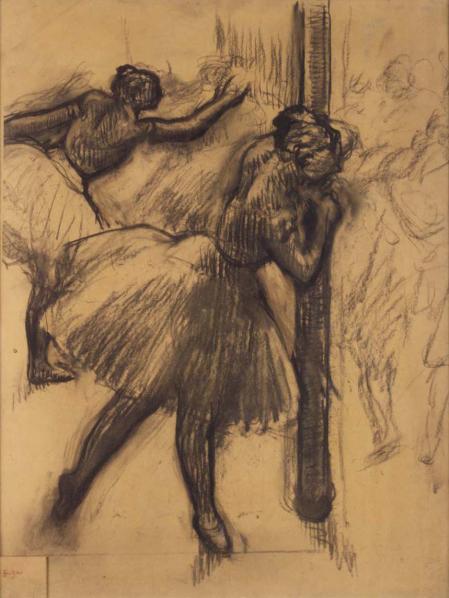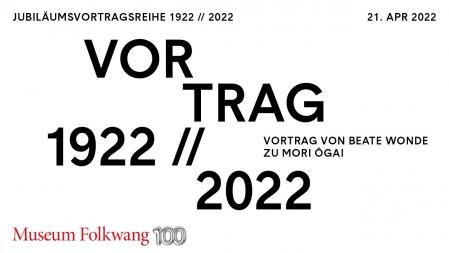BEATE WONDE (JAPANOLOGIST AND CURATOR, FORMER MORI ÔGAI MEMORIAL BERLIN) "MY APPRECIATION OF ART IS LIKE LOVE: ONCE YOU LIKE IT, YOU LOVE IT FOREVER."
In 1922, one of the most important mediators of European modernism in Japan died in Tokyo. Mori Ôgai, a military doctor in his main profession, had a significant influence on the cultural history of his country as a writer, translator, critic and intellectual institution for Germany and Europe. During his years of study in Germany 1884‒1888, he came into contact with European art, visited museums and frequented the studio of Gabriel von Max in Munich. After returning to his homeland, he wrote numerous art reviews, initiated the subject of artists' anatomy at the Tokyo Art School and published the first textbooks on European painting, which was just becoming established in Japan.
In a magazine column, he summarised everything he found worth reporting from his readings of German daily newspapers up to the First World War. In this way, his readers learned about the Futurist Manifesto within three weeks. He introduced artists like van Gogh for the first time. A literarily outstanding example of his contribution to Rodin's reception in Japan is the story Hanako (1910) ‒ an indirect link to the collection of Kôjiro Matsukata.
Lecture on site in the Garden Hall and online, no registration required.
https://www.youtube.com/watch?v=6A3bHmbuV1U
Participation fee: 5 € / 2,50 € / members of Kunstring Folkwang free. Tickets available at the box office on the day of the event. Limited number of participants.
In the context of the lecture series 1922 // 2022 for the anniversary year 100 YEARS OF THE MUSEUM FOLKWANG IN ESSEN.
The lecture series 1922 // 2022 uses outstanding contemporary artists, muses, art dealers and writers to shed light on the period in which the Museum Folkwang in Essen was founded. What and who moved the world in these early days of a museum on the pulse of time? The readings and lectures are intended as spot checks, exemplary drillings into personalities of the art world who died or were born in 1922. Signposts of the end and the beginning of an era are the focus of the events. All the people presented are connected to the Museum Folkwang.
Share on


